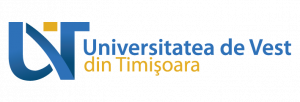
#CareerHacks - Truth and myth about career choice

Dr. Zselyke Pap
Counselor at the Career Counseling and Guidance Center (CCOC) of the UVT
If you are at the end of your pre-university studies, you have most likely asked yourself the question "What should I do after I finish high school?" countless times in the last year. And if you didn't, I'd bet your parents, grandparents, friends, and teachers put it on you more times than you wanted to hear. If in your efforts to answer this question and make a decision you have tried to find recommendations and answers by calling friends, relatives and the internet, it is very likely that you have often heard the most often offered and most useless advice. career: "Find your passion and you will have a dream professional life, in which you will not feel that you work one day". This advice is not only wrong, but also dangerous.
Why is it wrong? It starts from the wrong assumption that we are born with a passion for something, and we just have to discover it in ourselves, while the truth is that the passion for a field is built through exercise, study and sustained personal involvement in various activities. You get to be passionate about something only if you already had experience in that activity, and the possibility that in high school you had enough experience in real professional activities to form a passion for them is not excluded, but it is very small.
Why is it dangerous? Making a career decision based solely on the things we are passionate about is impulsive at best, and can be a professional failure in the future at worst. Yes, the passion for a field matters a lot… but there are many other things that are important to keep in mind when starting a career path, which you take the first step when deciding which university degree program you enroll in after the Baccalaureate.
A much more useful and scientifically sound advice is to identify your interests, skills, competencies and values, and choose the environment in which, starting from them, you can develop a passion. Because we know that it is not easy to identify these aspects on our own, we still offer you some tips and some ideas for a deeper self-knowledge.
1. Identify your interests
Identifying your interests is the key to finding and understanding your motivation for certain activities. To find out what your professional interests are, you can start by answering a few questions:
"What topics arouse my curiosity and desire to learn more?"
"What are the activities that arouse the most positive emotions in me?"
"In what activities have I taken part in in the past did I feel at ease and look forward to having the opportunity to get involved in similar activities?"
"Carrying out what activities do I feel like time flies and no matter how long it takes to achieve them, don't I get bored?"
"What projects / activities have I been involved in have given me fulfillment and / or a sense of pride?"
"If I had to give a speech about something, what would I choose?"
"Who are the characters I admire, or see as role models (real and / or fictional)?"
"What are you dreaming about with your eyes open?"
You can also find out your interests through more formal and structured ways, such as completing interest tests. You can always access YTM platform, where you can find a free professional interest test. After completing the test you will receive a detailed report on your interests, and a list of occupations in which these interests are found. And if you need additional advice, you can call the UVT Career Counseling and Guidance Center by contacting them at the e-mail address ccoc@e-uvt.ro.
2. Identify your skills and competencies
In an idyllic world, identifying our interests would be enough to make a decision about our future, but in the real world our interests are very diverse and we do not always have capacity needed to build a career for every interest we have. For example, you may have a strong interest in music, admire certain musicians, have favorite music-related activities, but not have the skills to become a musician. It is very important that after identifying a list of interests, you make a serious self-assessment of your skills and see what interests you have in the field and the minimum necessary skills to build a career.
The good news is that for most occupational fields nowadays you need one skill set which can be learned and developed by anyone with the availability and willingness to make an effort in self-development, because they are based, in large part, on intelligence as a general cognitive ability, which in most people works in normal parameters. In sports, music, visual arts and a smaller set of occupations, innate, field-specific skills are very important, but in most areas you will need social, technological, problem-solving, planning and skills. others, which are learned and perfected through exercise. So, find out about your interests, in order to find out as much as possible about the skills and competencies you need to build a career starting from them. Then write a list of these skills and competencies and evaluate yourself (you can also ask for outside help) to see what you already know, what is easy for you to do, what you could learn, and what would be difficult for you to learn from. that list.
3. Identify your desired values and lifestyle
Other recommendations you've probably heard in your attempt to find the right college program are: "Choose something for the future! If you become an engineer, programmer or lawyer, you will have a lot of money, and that matters… ”. Again, a myth that the internet and many people around us put on the pedestal when it comes to career decisions. The truth, however, is quite far from this statement.
There are no "trades of the future". The labor market is constantly changing. As proof, the change that all trades have gone through in the last few months. New jobs have emerged overnight and new career directions have emerged and are beginning to be implemented in response to the major change that society has gone through. The labor market is extremely versatile and dynamic, and the purpose of a study program should not be set only based on some job opportunities that exist when you start your studies and your opportunity to work in them in a few years. A healthier and more realistic goal that you can formulate when deciding which university degree program to choose is to acquire a set of skills that you can use to engage in a variety of contexts, no matter how the market changes. work from your first day of student until graduation. If you do not have an outlined interest in something and you cannot decide, it is better to look at what skills and how open to more opportunities the study programs you consider offer you, than the list of occupations in which you you can hire after graduation.
The salary will not make you happy. The values you respect in your daily work will make a difference. Studies show that the money we earn makes a difference in our happiness only to the point where we no longer have to worry about it. From the moment we earn enough that money is not a source of stress, no matter how much extra we have, it does not make us happier. But, if in our professional life our activities are aligned with our values, we will have greater satisfaction in our work and we will find more meaning and significance in life than those who earn more than they could spend, but make concessions to the values. to meet the requirements of the job. Identifying values it can be a difficult process, but you are the only person who can do it. If you need help in this process, you can call a counselor at any time for free UVT Career Counseling and Guidance CenterAll you have to do is send an email to ccoc@e-uvt.ro, or register on the center's website.
In the end, I hope that this short article has opened your horizons to identify that miraculous passion that circulates most career myths. To find your passion in a field, start the journey by identifying your current interests, values and skills, and then look for an environment in which you can cultivate those interests, values and skills to reach the level of passion. And a favorable environment to cultivate passions in various fields can be the university environment. You don't have to start college with a clear idea of "what you will be when you grow up." All you need is a clear set of interests to support your curiosity, some basic skills for your chosen field and a set of values that match the field in which you have chosen to pursue a university degree program. The rest of the road will be paved with study and exercise and leads to the development of your best version.
#BecomeYourBest
